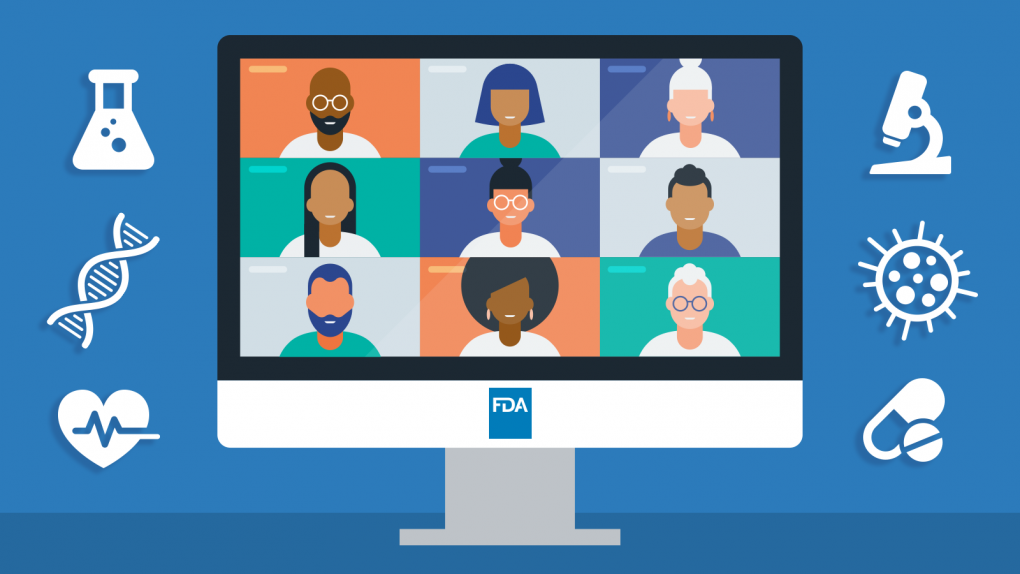Advisory Committees Give FDA Critical Advice and the Public a Voice

At the U.S. Food and Drug Administration, we rely on our many advisory committees to help us make sound decisions based on the best science available.
The FDA’s complex and multifaceted mission includes evaluating new medical devices and medicines, including vaccines and other therapies, to determine if they are safe and effective for their intended use. FDA advisory committees give our own agency experts outside, independent, and professional advice on various complex scientific, technical, and policy issues.
Advisory committee meetings can include a broad scientific discussion about important topics. They can also be more focused on a specific product under FDA review.
Expertise, Transparency, and an Outside Viewpoint
The FDA currently has 50 technical and scientific advisory committees and panels that include scientific experts and members of the public.
Members are selected by their expertise to meet the needs of each specific committee’s function and topic area. Science-oriented professionals – such as physician-researchers, statisticians, engineers, medical faculty, chemists, and biologists – are represented on the committees.
In addition, each committee typically includes a consumer representative and an industry representative and, based on the meeting topic, a patient representative who provides the patient or caregiver experience for a particular disease, condition, or medical product.
The FDA uses advisory committees to:
- Get advice from experts who work outside the agency.
- Work toward an open and transparent government.
- Encourage patients, health care providers, and other interested people to share their views during the open public hearing or by submitting comments to the open docket.
Committees Provide Scientific, Medical Advice
The primary role of FDA advisory committees is to provide independent expert advice as we evaluate products, which helps us make sound decisions based on the available science.
The committees review and evaluate data about the safety, effectiveness, and appropriate use of products that are intended for use in the prevention, treatment, mitigation, or diagnosis of human diseases and conditions – and any other products the FDA regulates. These include issues related to human drugs, biological products, medical devices, tobacco, and toxicology. Committees also consider general policy matters and the quality and relevance of the FDA’s research program, which provides scientific support for the regulation of these products.
The committees’ discussions are designed to help ensure that the public is clear about the FDA’s expectations for data to support the safety and effectiveness of products, so that the public can be confident that the required regulatory standards will be met.
This process is transparent and independent, and open to the public. Members of the public have an opportunity to address the committee and share their insight.
Advisory committees make nonbinding recommendations to the FDA, which generally follows the recommendations but is not legally bound to do so. The available science and data guide the agency’s decision-making.
The FDA generally makes advisory committee meeting materials available to the public no later than two business days before any meeting. These materials include an agenda and background information from the FDA and other information as appropriate.
These committees are a valuable resource and make important contributions to FDA’s decision-making processes. For more information about the FDA’s advisory committees and how to participate, contribute, or join, see:
- Learn About FDA Advisory Committees
- Guidelines for Speakers at the Open Public Hearing of an FDA Advisory Committee Meeting
- Calendar of Public Meetings
Content current as of: June 13, 2024
Source: FDA
Return to FDA Consumer Articles
